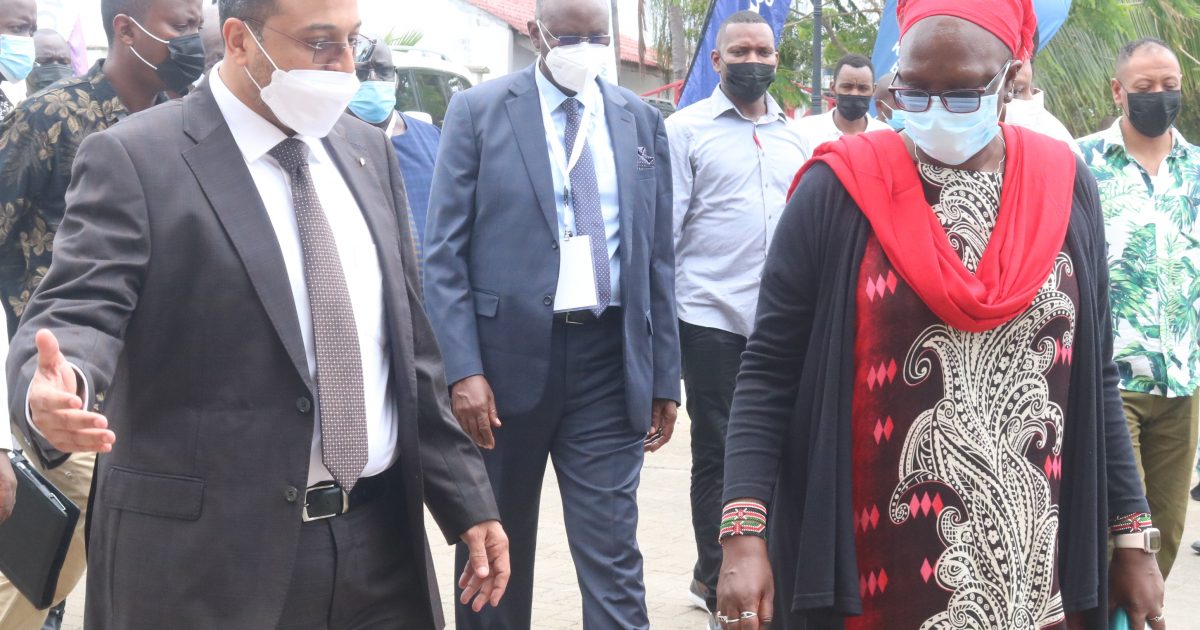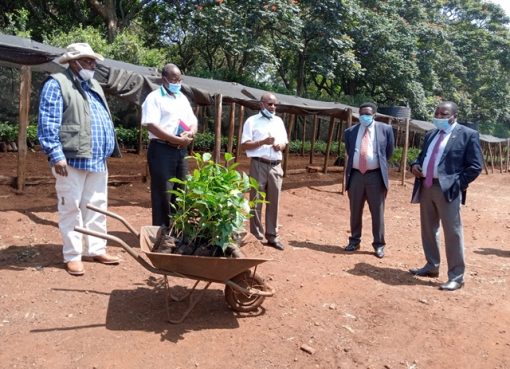Kenya and Uganda have resolved to forge a common ground as part of deliberate efforts to end persistent bottlenecks that affect smooth flow of bilateral trade.
Trade and Industrialization Ministers from the two countries have identified several non-Tariff Barriers (NTBs) that have continued to create unnecessary friction.
Speaking during the official opening of Kenya Uganda Agri-business symposium and exhibition in Mombasa, Kenya’s Trade and Industrialization Cabinet Secretary (CS) Betty Maina emphasized on the need for consolidating trade and economic ties between the two countries.
The exhibition brings together agribusiness and agricultural stakeholders, including farmer associations and cooperatives, financial service providers and government officials.
Maina said there is a need for the two nations to jointly explore other markets for their Agricultural products due to the shrinking regional market brought about by production competition.
“Some of the non-tariff barriers in agricultural products we face because our neighbor is producing the same thing as us. My appeal is to jointly work together to produce to other markets and explore partnerships,” said Maina.
The CS said the two should exploit ways to access European markets agricultural products as they cannot individually meet the existing demand.
Ugandan exports to Kenya are mainly agro products that include tea, through the transit Auction market in Mombasa: Maize, Milk and Cream, Plywood, dried legumes, animal feeds and sugar.
Trade between the two countries has been flourishing and according to Kenya’s economic survey 2019, the value of imports from Uganda to Kenya rose to Sh 49.4 Billion in 2019 on account of increased imports of maize, animal feeds, milk and sugar.
The data shows that while Kenya’s exports to Uganda have remained relatively unchanged, Uganda’s exports to Kenya have tripled from Sh 17.5 billion in 2014 to Sh 49.4 Billion in 2018.
Agriculture remains the mainstream in Uganda’s economy, accounting for over 24 percent of the Gross Domestic Product (GDP) and generating more than half of the country’s export earnings by 54 percent according to the IMF and World Bank report of 2019.
The sector employs over 70 percent of the working population which also provides the first employment for three quarters of those aged between 15 and 24 years old.
Maina also challenged Ugandan exporters to take advantage of the Standard Gauge Railway (SGR) and the Naivasha Inland Depot for movement of their cargo in and out of the Mombasa port.
Her Ugandan counterpart Francis Mwembesa, called for the speedy eradication of non-tariff barriers within Kenya-Uganda cross border so as to facilitate smooth trade between the two countries.
“Uganda and Kenya have reported non-tariff barriers affecting Agri-products which have for decades remained an impediment to trade,” said Mwembesa.
Since the start of East Africa Community (EAC) customs union in 2005, Uganda exports to Kenya have increased tremendously from USD 155.28 million recorded in the financial year 2005/06 to over USD 617.34 by 2020/21.
Uganda’s imports increased from 422.76 million USD recorded in the financial year 2005/06 to over USD 848.26 Million by 2020/2021.
By Mohamed Hassan





